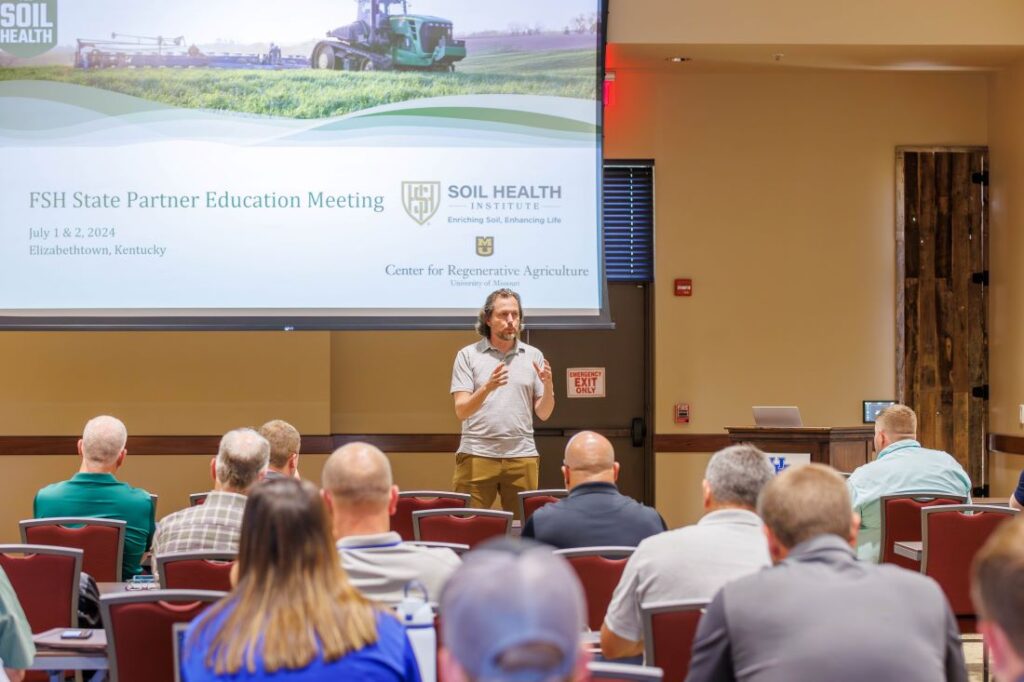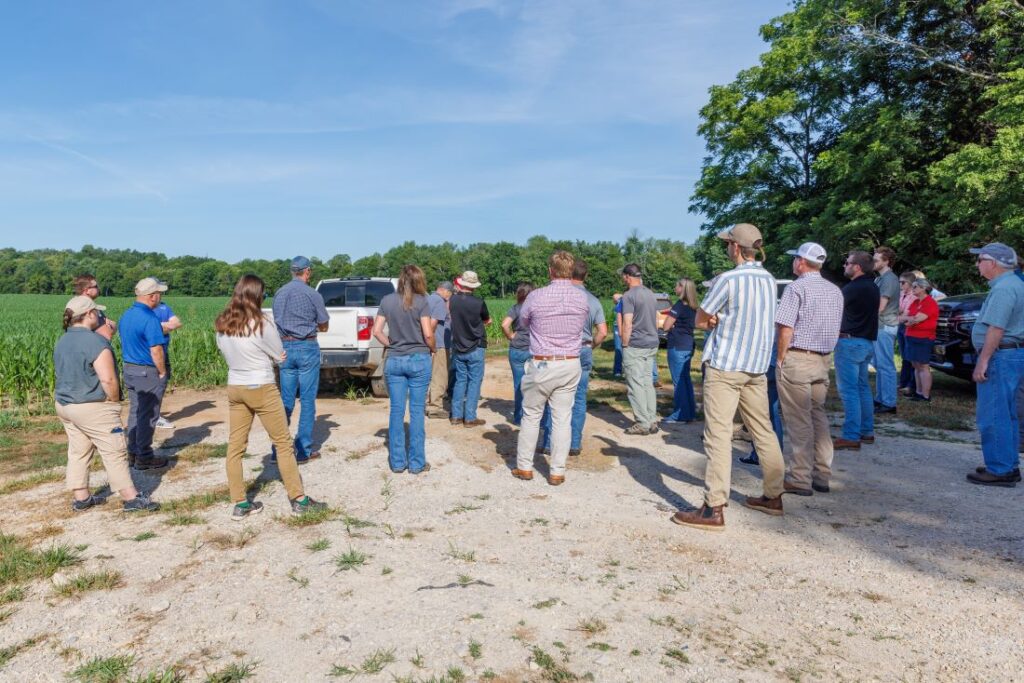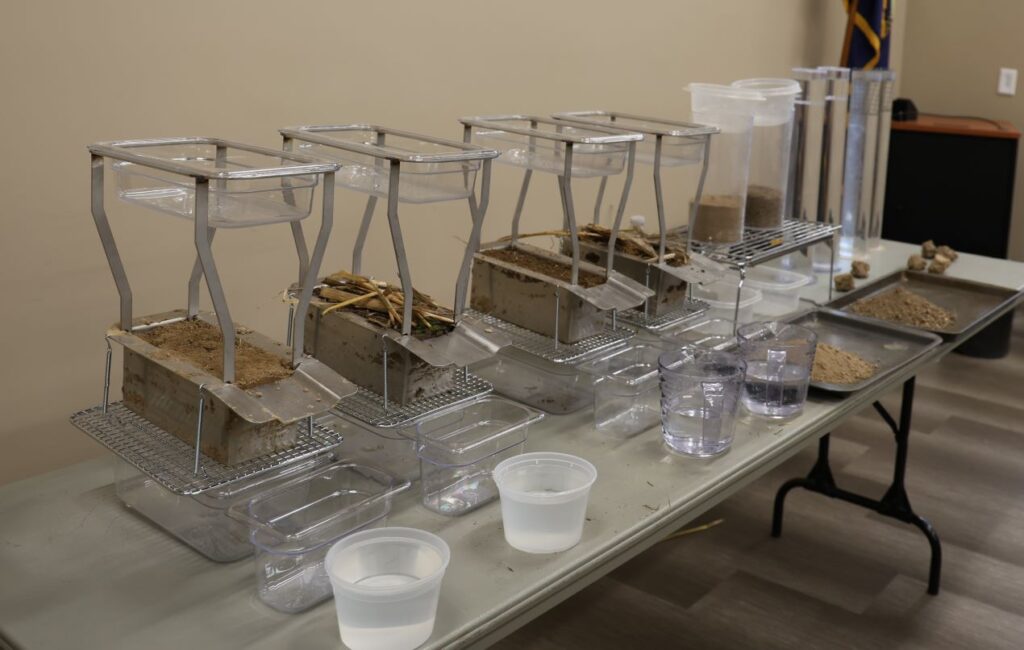Attendees from 12 states and Washington, D.C., gathered in Elizabethtown, Kentucky, July 1-2 for a Farmers for Soil Health State Partner Education Meeting.
The 48 conservation professionals, local and national partners, commodity organization representatives and guest speakers shared information and expanded their networks at the event, presented by the Soil Health Institute (SHI), and the University of Missouri’s Center for Regenerative Agriculture (CRA) as part of the Farmers for Soil Health (FSH) Climate-Smart Commodities Partnership. The FSH collaboration, covering 20 states across the Midwest, Great Lakes, and Chesapeake Bay, aims to boost cover crop adoption on 30 million corn and soy acres by 2030. SHI and CRA lead the FSH education team, collaborating with technical assistance leads in each state to offer education and resources for successful adoption of soil health management systems.

The first day’s talks included updates from FSH Executive Director Dr. Ben West and Greg Pilchak, the National Fish and Wildlife Federation’s Program Director for Central Region Working Lands; and an overview of cover crop seeding and establishment with CRA Director Dr. Rob Myers, also a member of SHI’s Board of Directors. Farmer and consultant Barry Fisher discussed managing nutrients and cover crops, while University of Kentucky Associate Professor Dr. Erin Haramoto spoke about successful herbicide use in cover crop systems. Kentucky farmer and Leopold Conservation Award winner Joel Reddick explained his family’s strategy and purpose for incorporating soil health management practices on their farm, including grazing cover crops. The final session was a farmer panel moderated by Kentucky farmer and consultant Jesse Horn. Local farmers experienced with implementing cover crops discussed how they got started with the practice and why, and what opportunities they see for continuing using cover crops in the future. The day concluded with dinner and networking.
On the second day, participants gained experience in planning and facilitating events from the FSH Education Team and B3 Creative Agency, then visited Dr. Richard Preston’s farm in Glendale, Kentucky, where Dr. Preston and Paul Howlett led a tour of their corn fields, highlighting the importance of cover crop residue in row crops in their area.

The event also featured a hands-on workshop on SHI’s free Slakes app, which measures aggregate stability, by SHI Program Manager and Soil Health Educator Ann Marie Calabro. Soil health demonstrations by Fisher included a tabletop rainfall simulation, slump test, infiltration test and slake test in columns.
Fisher and Myers wrapped up the day’s sessions debunking cover crop myths and discussing timeline considerations for cover crop transition.

Learn More, Stay Connected
Farmers and landowners can find more information and connect with local technical assistants as well as find tools and resources at www.farmersforsoilhealth.com
SHI and CRA will continue to host virtual and in-person education events over the next two years to support the FSH Climate Smart Project. Virtual webinars will be open to everyone and geared towards farmers, landowners, and technical assistants.
If you have questions, SHI staff members are here to help! Please reach out to Erin Gundy, Soil Health Educator, at egundy@soilhealthinstitute.org, or Ann Marie Calabro, Program Manager and Soil Health Educator, at acalabro@soilhealthinstitute.org.